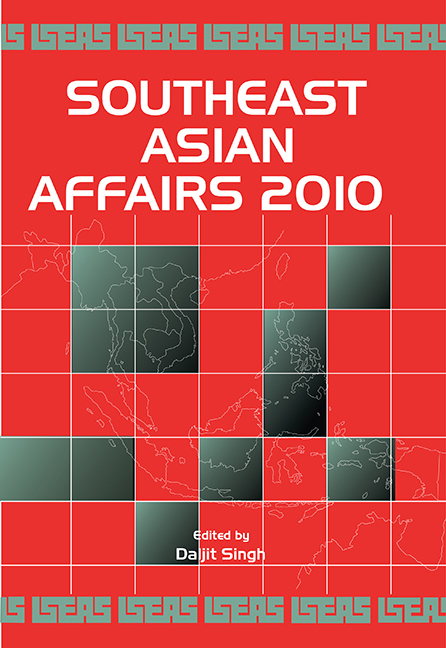Cambodia in 2009: The Party's Not Over Yet
from CAMBODIA
Published online by Cambridge University Press: 21 October 2015
Summary
The year 2009 began in Cambodia with a party. The Cambodian People's Party (CPP) celebrated thirty years of Cambodia's liberation from the Khmer Rouge regime with a spectacular event in Phnom Penh's Olympic Stadium and broadcast across the country by the Cambodian television stations. Thousands of civil servants and party officials attended the event, taking part in elaborate tableaux involving the holding up of coloured cards to make pictures and slogans. Party leaders were feted in speeches, dancers and marching bands performed, and boy scouts released white doves into the air.
The anniversary was indeed something for the CPP to celebrate. It followed close on the heels of a landslide election victory in 2008 which finally, after thirty years of struggle, allowed the CPP to form a government which controlled the whole country, without the need for bargaining with coalition partners. The anniversary also coincided with the crest of Cambodia's five-year economic boom, and the successful repositioning of its relations with donors to balance lingering Western dreams of conditionality with Chinese “soft power”. The CPP had never been so popular or so powerful.
Subsequently, the picture has looked less rosy, as the ripples from the global financial crisis hit Cambodia's shores. Layoffs at garment factories and construction sites in Phnom Penh and around the region entailed that fewer remittances reached rural villages. But expectations of a good harvest cushioned the impact on the CPP's rural support base, and reduction in the high level of inflation of 2008 gave poor farmers and public sector workers some relief. The contraction of the economy in 2009 has not brought about significant social or political unrest; indeed, ongoing administrative reform entrenches CPP rule further into the institutional structure of government and there seem to be few possibilities for contenders for power to make any headway against the CPP's formidable machinery of control.
Political Issues
Cambodia's programme of administrative decentralization rumbled on this year, with the election of councils at the provincial and district level across the country in May. These councils represent the latest phase of Cambodia's long-running decentralization and deconcentration reform programme, which began with the holding of elections at the commune level in 2002.
- Type
- Chapter
- Information
- Southeast Asian Affairs 2010 , pp. 85 - 100Publisher: ISEAS–Yusof Ishak InstitutePrint publication year: 2010



